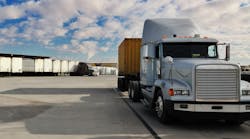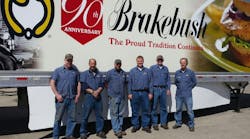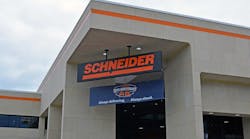Our tools are inventing us
I don't know about you, but I have always tended to think in terms of people using tools to shape their world, not vice versa. But what if the technologies we use are also shaping us? According to William E. Halal, professor emeritus of science, technology and innovation at George Washington University; co-founder of the Institute for Knowledge & Innovation; and president of TechCast LLC, that is exactly what is happening and always has (www.billhalal.com). What's more, we should be darned grateful that is the case.
In his new book, Technology's Promise (Palgrave Macmillan, 2008), Halal writes that “The prevailing technology determines the dominant type of work people do, their social institutions and central values — in short, the nature of the entire society. Technology is the fulcrum on which cultural forces leverage change throughout society.”
Could that be? Absolutely, says Halal. “Technology is the embodiment of our knowledge,” he says. “It is the lever that transforms knowledge into social change. As Arthur C. Clarke said, ‘Tools invented man.’”
Think about the early wagon roads that were the beginning of freight transportation in the American West, for instance. As the technology of mule- and oxen-pulled wooden wagons gave way to powered vehicles, the lives of those who moved the freight evolved, too, shaped and reshaped by the changing tools of their trade. The wagon masters, freighters, teamsters and blacksmiths of the 1880s who hauled freight over those rutted, dusty and dangerous trails gradually became today's fleet owners, truck drivers and technicians.
So what are our tools making us into now? How are hybrids, wireless communications, computer modeling and the astonishing host of other technologies reshaping the trucking industry and even society as a whole today? For starters, in the past decade alone, truck drivers have become “truck operators,” mechanics have morphed into “technicians,” and fleets have added a host of IT jobs that did not even exist a few years ago. New tools have demanded new skills and new perspectives from their users, and people have changed accordingly.
It is not only individual jobs that have been shaped by technology, however. The very nature of the trucking business has changed and continues to do so. There are dozens of examples, but perhaps one of the most profound is the way in which the business is becoming more collaborative. Real-time, untethered communication technologies have enabled new levels of cooperation that are turning competitive trucking industry executives into creative, entrepreneurial managers scouting for win-win opportunities across traditional enterprise boundaries.
This is not to suggest that every new technological innovation is somehow inherently good. Far from it. But new tools, regardless of original intention, do change the people and organizations that use them, according to Halal. He outlines the changes taking place now that he believes will transform business, government and other institutions, creating (if we are lucky) a synthesis of the Western ideals of free enterprise and democracy that will offer the prospect of a “coherent world order.”
“The key to understanding this transition lies in seeing that technological evolution comprises a natural life cycle of the entire planet, much like the evolution of any organism, although infinitely larger,” he says. “Whether you are talking about a teenager or an entire civilization, the challenge is much the same, grow up or die.”
Halal's forecasts are certainly not blind optimism, but he does offer a thoughtful, hopeful, plausible path forward based on the empirical evidence at hand. And that seems like a pretty useful new tool indeed.


